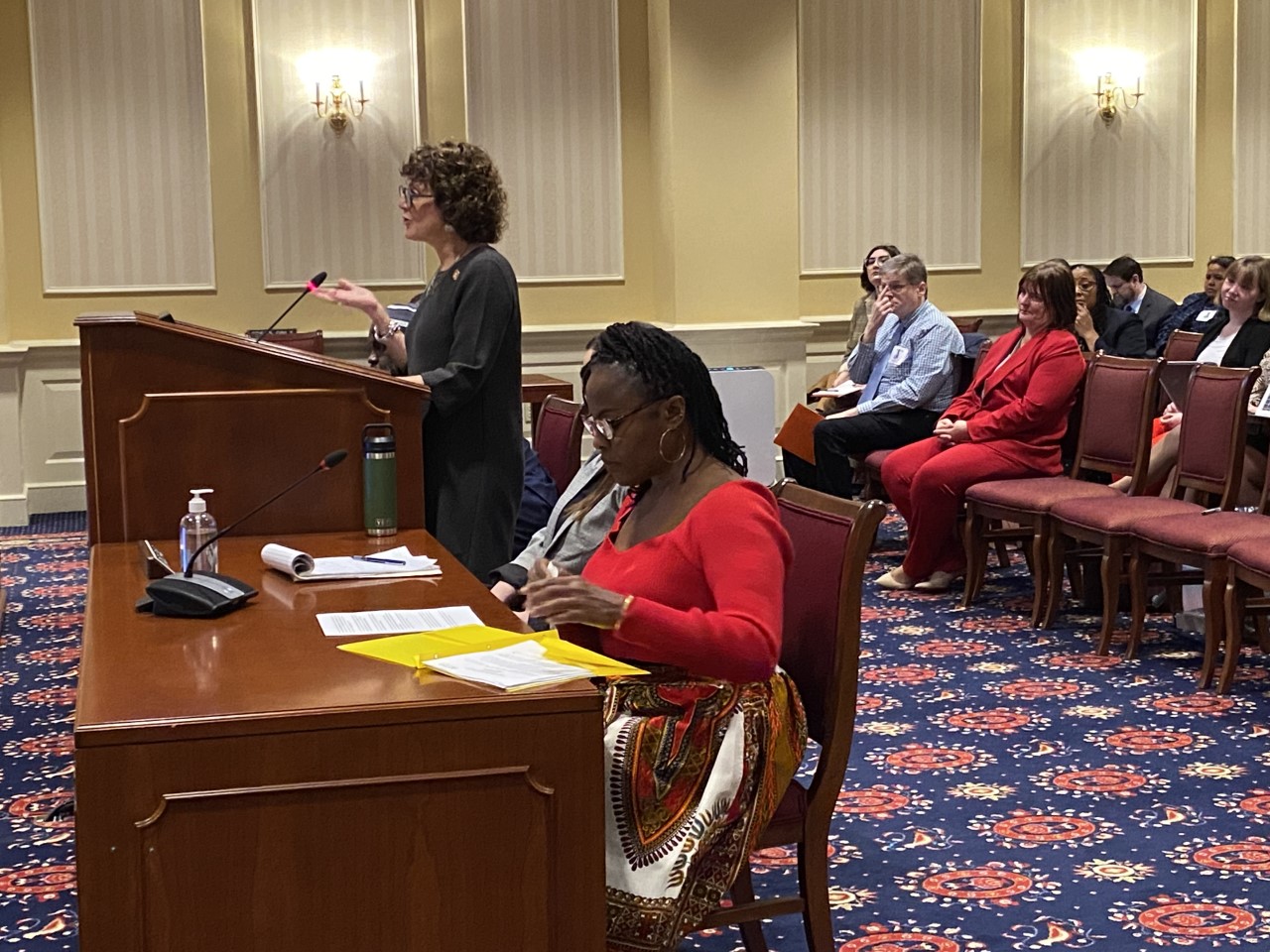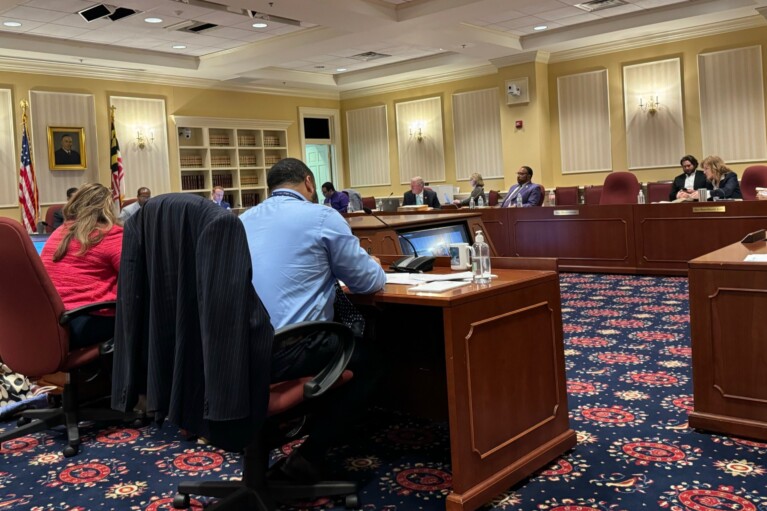Supporters push for reform of Maryland’s medical, geriatric parole system

Research by the Justice Policy Institute, which advocates and analyzes criminal justice policies, concluded that the recidivism rates of people 60 and older who are released from corrections in Maryland is about 3%.
“This shows that we can release [older inmates] without a major risk to public safety…” said Shekhinah Braveheart, advocacy associate with the Justice Policy Institute based in Washington, D.C. “Without substantial reforms, the aged and ailing population will continue to grow and prisons are ill-equipped to downright hostile for those suffering from chronic or terminal illnesses.”
Additionally, about 6% of Maryland’s prison population is older than 50, and nearly eight out of 10 individuals serving the longest prison terms are Black, the institute found.
Braveheart joined others who testified Wednesday before the Senate Judicial Proceedings Committee in support of legislation to expand and enhance medical and geriatric parole for those incarcerated in prison.

Sen. Shelly Hettleman (D-Baltimore County), at lectern, gives an overview on legislation she’s sponsoring to reform medical and geriatric parole. Photo by William J. Ford.
The bill sponsored by Sen. Shelly Hettleman (D-Baltimore County) seeks to not only improve and streamline the state’s “broken” medical and geriatric parole system, but also show compassion for older inmates.
“This bill is a good piece of legislation that represents a consensus for how best we can provide a humane and just and safe medical, geriatric parole system that will reflect best practices,” she said.
There’s a cross-file of the bill in the House of Delegates sponsored by Del. David Moon (D-Montgomery), vice chair of the House Judiciary Committee which held a public hearing Jan. 31.
According to a fiscal note, medical parole in Maryland was established in 2008 as a form of release “for incapacitated inmates who, as a result of a medical or mental health condition, disease, or syndrome, pose no danger to public safety.”
Some of the proposed changes in the medical parole process include:
- The repeal of a requirement that medical parole recommendations must be presented to the governor, who could disapprove the decision.
- An inmate may be released on medical parole at any time during the term of that person’s sentence only if a “licensed medical professional has determined the inmate is chronically debilitated, incapacitated, suffers from a terminal illness, or physically incapable of presenting a danger to society…”
- The “imminent death” of an incarcerated person is defined as likely to occur within six months.
- An inmate must have an independent, in-person medical evaluation and the parole commission “must give equal consideration” to the findings.
Geriatric parole would focus on inmates 60 years of age and older, who had served at least 15 years and not subject to registration on the state’s Sex Offender Registry. An individual who meets the criteria would be eligible for parole every two years.
Not everyone agreed with some of the language in the bill.
William Katcef, assistant state’s attorney in the Anne Arundel County Office of the State’s Attorney, said the legislation broadens the number of people who could become eligible for medical and geriatric parole. For instance, Katcef said the bill could “possibly” grant eligibility for those charged with murder and sentenced to life in prison without the possibility of parole.
“I don’t think those people should ever be released from incarceration,” he said.
Hettleman said after the hearing the bill doesn’t include those individuals.
“The bill was not meant to apply to people who are incarcerated without the possibility of parole,” she said. “If that’s something we have to clarify in the bill, then we’ll clarify that in the bill.”
Analysts note that about $64,000 would be needed next fiscal year to hire an administrative officer within the parole commission if the bill passes. This person would submit reports on parole outcomes and other information to the Justice Reinvestment Oversight Board.
Medical parole and gubernatorial review
Sen. Jill Carter (D-Baltimore City) has legislation focused squarely on the current law that allows a governor to overrule a medical parole recommendation by the Parole Commission.
The legislature approved two years ago to remove the governor from the parole process. Carter called it “an omission” for not doing the same thing for medical parole.
Since that decision in 2021, Carter said five people have died awaiting medical parole.
“This is probably the most important one we should’ve addressed,” she said.
The legislation is cross-filed in the House of Delegates and sponsored by Del. Sandy Bartlett (D-Anne Arundel), who presented her bill last month before the Judiciary Committee.
The bill didn’t pass last year because of an amendment that would not have allowed medical parole for a person charged with first-degree murder.
Bartlett said she rejected that amendment.
“Medical parole is not isolated by the charge…you are serving,” she said.
Current law provides the governor up to 180 days to overturn a medical parole decision by the parole commission, even if a person may be “incapacitated, or a chronically debilitated person.”
“Such treatment quite frankly is illogical,” Bartlett said. “The governor was removed from the parole process. Let’s finish what we started by removing the governor out of the medical parole process as well.”




 Creative Commons Attribution
Creative Commons Attribution